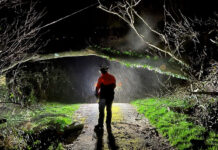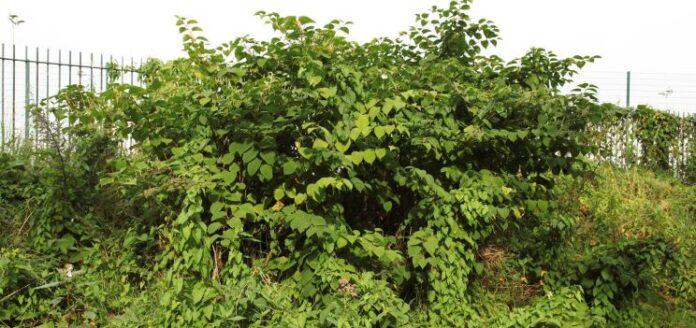New Swansea University research has looked at the long-term environmental impact of different methods to control Japanese knotweed.
The invasive species has been calculated to cost more than £165 million to manage every year in the UK alone. Its presence can blight property purchases for households across the country.
This has led to the development of different ways of trying to control it but with sustainability becoming increasingly important, understanding the effect of these management methods is vital.
A new study, led by biosciences lecturer Dr Sophie Hocking and looking at the entire life cycle and long term impacts of different management approaches, has just been published in online journal Scientific Reports.
Dr Hocking said: “In light of the current climate emergency and biodiversity crisis, invasive species management and sustainability have never been so important.
“Both of these are intrinsically linked – we know that invasive species can cause substantial negative ecological, social and economic impacts, and the way we manage these species should mitigate against this in a sustainable way to ensure we are not doing more harm than good.
“Although there has been more research into how we can best manage the plant, little is known about how sustainable these approaches are.”
This study follows on from previous research which has put Swansea University at the forefront of Japanese knotweed expertise and understanding.
Back in 2012 Professor Dan Eastwood and Dr Dan Jones launched the world’s largest knotweed control field trial which tested the main physical, chemical and integrated methods of controlling the species. The research has been undertaken in close partnership with Complete Weed Control’s Managing Director Ian Graham and Advanced Invasives, a spinout company, headed by Dr Jones.
This field study provided valuable information for Dr Hocking’s work. Using a life cycle assessment (LCA) – a methodology for assessing environmental impacts associated with all the stages of the life cycle of a commercial process – to find out the relative environmental impacts of a range of chemical and physiochemical knotweed management methods.
The researchers went beyond a focus on the use and end-of life if these methods and assessed the environmental impacts of different management methods including the production of materials and herbicides required to achieve knotweed control; something that is often overlooked when we evaluate sustainability. For the study, the team selected methods commonly used for knotweed management and used real-world data on time consumption, amount of materials used and economic costs to evaluate their relative environmental impacts.
Of the methods tested, they found that the simplest approach – glyphosate-based foliar spray control methods – used the least materials, had the lowest environmental impacts, the lowest economic costs and is, therefore, the most sustainable approach to tackle knotweed management. The findings are of significance to those working with or are affected by the presence of Japanese knotweed on their land
Dr Hocking added: “Currently there is a big conversation around the sustainability of herbicides and the ecological and human-health impacts of this. Social perceptions of the ways we manage invasive plants are really important, but we need our understanding of sustainability to be rooted in empirical evidence.
“We hope that this research will contribute to our wider understanding of the sustainability of different approaches in invasive plant management and help to inform current knotweed management practice.”
Help keep news FREE for our readers
Supporting your local community newspaper/online news outlet is crucial now more than ever. If you believe in independent journalism, then consider making a valuable contribution by making a one-time or monthly donation. We operate in rural areas where providing unbiased news can be challenging. Read More About Supporting The West Wales Chronicle
























